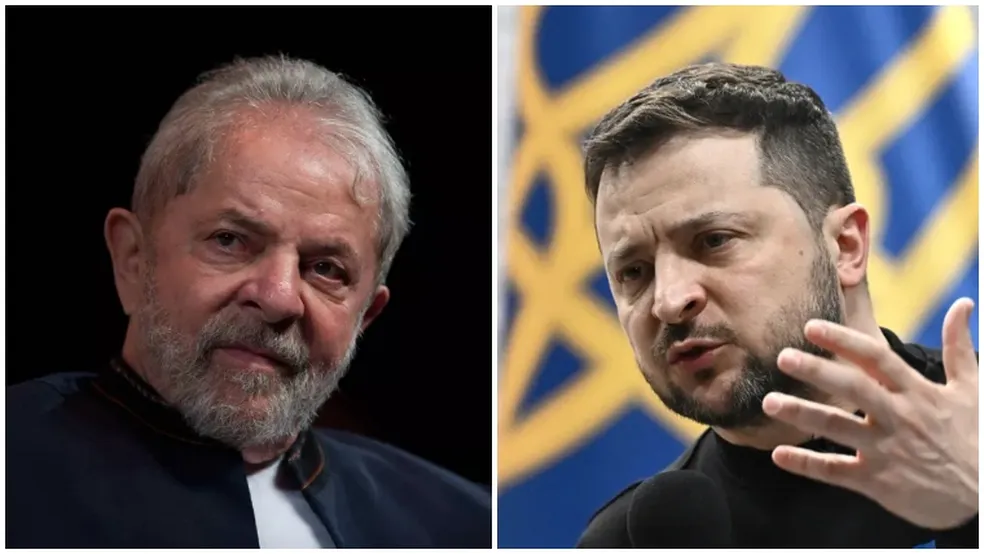
The largest American magazine specializing in geopolitics, Foreign Policy, defends Brazil as a mediator in the conflict between Russia and Ukraine. The article is signed by Jorge Heine, professor at the Pardee School of Global Studies at Boston University, and Thiago Rodrigues, professor of security studies at the Fluminense Federal University, in the state of Rio de Janeiro.*
Since Russia’s invasion of Ukraine in February 2022, the resurgence of non-alignment in the Global South has confounded Western countries. The United States and its allies do not seem to understand the fact that many countries in Africa, Asia and Latin America refuse to join the sanctions campaign against Russia or send arms to Ukraine. The neutrality of many Latin American countries – and their unwillingness to become de facto belligerents in a European war – is described as shameful, if not a moral failure. Some go so far as to say that the region’s predominantly non-aligned posture endangers the treaty-based international order.
Latin America’s largest country and a historic diplomatic heavyweight, Brazil has come under heavy scrutiny for its stance on Ukraine. Although the United States has pledged to support the war in Ukraine “for as long as necessary,” President Luiz Inacio Lula da Silva has openly pressed for a truce and a peaceful solution to the conflict; some frank statements by Lula generated resistance in Washington. But Brazil remains the country best placed to act as a mediator to end the war in Ukraine – precisely because it has refused to take sides.
Lula began working on his peace proposal shortly after his inauguration in January 2023. During a visit to Washington in February, Lula suggested to Joe Biden, president of the United States, that Brazil create the so-called “peace club” – a group of countries that would facilitate peace negotiations between Russia and Ukraine and that could include emerging powers such as China, India, Indonesia and Turkey.
In March, a 30-minute video call between Lula and Volodymyr Zelensky, President of Ukraine Zelensky, showed that Brazil is serious. Lula took the opportunity to convey to Zelensky the urgency of a negotiated solution to the war. Then, in April, Lula’s main adviser, Celso Amorim, traveled to Moscow, where, breaking all protocol, he was received by Vladimir Putin himself, President of Russia. On the same trip, Amorim met with one of the main foreign relations advisors of Emmanuel Macron, president of France. Macron also seems interested in negotiating an end to the conflict.
The outcome of Amorim’s meeting with Putin was uncertain at best, with Amorim acknowledging that neither side is ready to sit down and talk. Still, Amorim’s personal audience with Putin – and the recent trip by Russian Foreign Minister Sergei Lavrov to Brazil – indicates the seriousness with which Moscow is taking the government’s proposals in Brasilia.
Lula’s visit to China in April allowed Brazil to continue its mediation efforts. The two countries released a joint statement, agreeing that “negotiation is the only viable way out of the crisis in Ukraine”, a prospect that the United States and its allies vehemently oppose – Chinese President Xi Jinping’s hour-long phone call with Zelensky last week seems to indicate a potential breakthrough.
Brazil’s foreign policy so far has involved a delicate balancing act between Western and Russian positions. Instead of abstaining in the February 23 vote on a United Nations General Assembly resolution that required Russia to withdraw from Ukrainian territory – as did China, India and South Africa, also members of the BRICS – Brazil voted to favor. (The BRICS group also includes Russia, which voted against the resolution.) However, Brazil only did so after presenting amendments that advocated a full ceasefire in Ukraine. On other issues, Brasilia has sided with Moscow – such as when it voted in favor of the resolution put forward by Russia at the UN Security Council to investigate the Baltic Sea attack on the Nord Stream 1 and 2 pipelines in September 2022. The only other supporter measure was China.
Far from reflecting ambiguity or indecision, as it is sometimes portrayed, Brazilian foreign policy embodies what we call active non-alignment. As Latin America is buffeted by pressures from the great powers to take sides in what is becoming a second Cold War between the United States and China, active non-alignment dictates that the region must focus on its own interests and not on ours. from others.
Active non-alignment borrows ideas from the non-aligned movement that flourished in the 1960s and 1970s, but it is not its equivalent. Founded in 1961 and led by leaders such as Jawaharlal Nehru of India, Gamal Abdel Nasser of Egypt, and Kwame Nkrumah of Ghana, the non-aligned movement provided a platform for postcolonial states struggling with development challenges and fragile sovereignty. in a bipolar world. Today’s active non-alignment is a foreign policy doctrine, not a movement. It takes place during what the World Bank has called the “wealth shift” from the North Atlantic to Asia-Pacific and when the emerging powers of the Global South – like Brazil – are starting to flex their muscles.
Active non-alignment is not about neutrality or equidistance between great powers. Rather, it is dynamic. This means that on some issues (such as democracy or human rights), Latin American countries can take positions closer to the United States, while on others (such as international trade) they can take positions closer to China. What countries will not do is side unequivocally with one or the other. This, of course, requires a highly calibrated diplomacy that assesses each issue on its own merits and then decides how to respond. It is a much more demanding task than doing what you are told to do on each issue, as aligned countries are expected to do. But this position also gives developing nations greater influence in their dealings with great powers. Brazil’s behavior is proactive, always looking for new opportunities on the international scene, instead of passively accepting these realities.
Active non-alignment also emphasizes the need for regional cooperation and multilateralism. Brazil has excelled at this in the past, both in Latin America and beyond. In the region, it helped found the Rio Group in the 1980s and the Union of South American Nations in 2008. In the Global South, Brazil has been instrumental in the India-Brazil-South Africa forum launched in 2003, the BRICS grouping and the G-20 of agricultural exporting nations. The same can be said of entities such as the Africa-Latin America Dialogue and the Arab-Latin America Dialogue, which Lula created in his first two terms.
Brazil’s mediation efforts in Ukraine have so far faced obstacles.
Both warring parties are reluctant to come to the negotiating table, and Western nations have preferred to denounce Brazil’s efforts as naive at best and “Russian and Chinese propaganda parrots” at worst. These difficulties have led some to recall Brazil’s joint initiative with Turkey in 2010 to get Iran to limit its nuclear program at the end of Lula’s second term. Brazil intended to get the West to partially lift sanctions against Iran if Turkey offered guarantees to safely handle Iran’s enriched uranium. But a new round of US sanctions on Iran has derailed the deal.

One lesson Western commentators drew from this ordeal was that Brazil had lost its mind, was not ready for prime time, and should not get involved in ambitious ventures outside of South America. But one can easily come to the opposite conclusion. Given the state of Iran’s nuclear program today, in 2010 the United States squandered a good opportunity to strike a deal that wasn’t perfect, but good enough. Instead, Washington sabotaged Brazil’s efforts – and now appears to be paying the price. There is something to be said for uninvolved parties acting as honest intermediaries in international affairs.
Lessons from Brazil’s initiative on Iran must be applied to today’s war in Ukraine. If there is one country in the Global South that is ideally positioned to act as an intermediary between north, south, east and west, it is Brazil, whose strong diplomatic traditions and coalition-building capacity place it in an unrivaled position to forge ahead in bringing peace. for Ukraine. As Foreign Policy columnist Howard French wrote last week, Brazil is “a large multiracial society with a diverse economy and an abundance of soft power – but without a history of extraterritorial conquest and without ambitions of dominance over others”. These credentials are only reinforced by having an experienced and respected leader like Lula in office. An important next step should be to bring India into the “peace club”.
On April 6, Lula made a statement proposing that Ukraine relinquish its claim to the Crimean Peninsula, which Russia invaded and annexed in 2014, while Russia would withdraw from the territories it invaded in 2022. (This means that Russia could stay in Donbass and other areas it previously occupied in eastern Ukraine.) The next day, the spokesman for the Ministry of Foreign Affairs of Ukraine responded on Twitter: “There is no legal, political or moral reason why Ukraine should desist from an inch of their land. Any mediation effort to restore peace must be based on respect for sovereignty and full restoration of Ukraine’s territorial integrity.”
In the end, if talks go ahead, does the West have an interest in ending this tragic war or does it prefer to fight it as long as necessary “to permanently weaken Russia,” as US Defense Secretary Lloyd Austin put it. , when describing US objectives in April 2022. Until now, Ukraine’s preference has been not to relinquish any territory. However, this could be an expensive gamble for the Ukrainian people and economy. While estimates vary, leaked US Defense Intelligence Agency documents – whose authenticity has been questioned by both Russia and Ukraine – estimate that Ukraine has so far suffered 124,500 to 131,000 casualties in the war (an estimated 189,500 to 223,000 Russians have died ).
While both Russia and Ukraine suffered impressive casualties, Ukraine suffered much more economic damage. In 2022, Ukraine’s GDP dropped by 29.1%; that of Russia fell only 2.1%. Russia has three times the population of Ukraine, but in 2021 its economy was 15 times larger. The International Monetary Fund’s projections for 2023 indicate that Russia’s economy will perform better than Germany’s, with the former’s GDP growing by 0.3%. In other words: Western sanctions are barely making a difference. One reason for this, of course, is that Russian trade with the Global South is booming.
A stalled war – which is where Ukraine may be headed – is ultimately a matter of economic resilience. In this regard, Russia has the upper hand. The Brazilian mediation drive to end the conflict soon could be an opportunity to save Ukraine – rather than the naive and misguided venture many in the West describe.
*Translated by Charles Nisz
Source: https://www.diariodocentrodomundo.com.br/brasil-deveria-mediar-paz-na-ucrania-diz-uma-das-principais-revistas-dos-eua/

